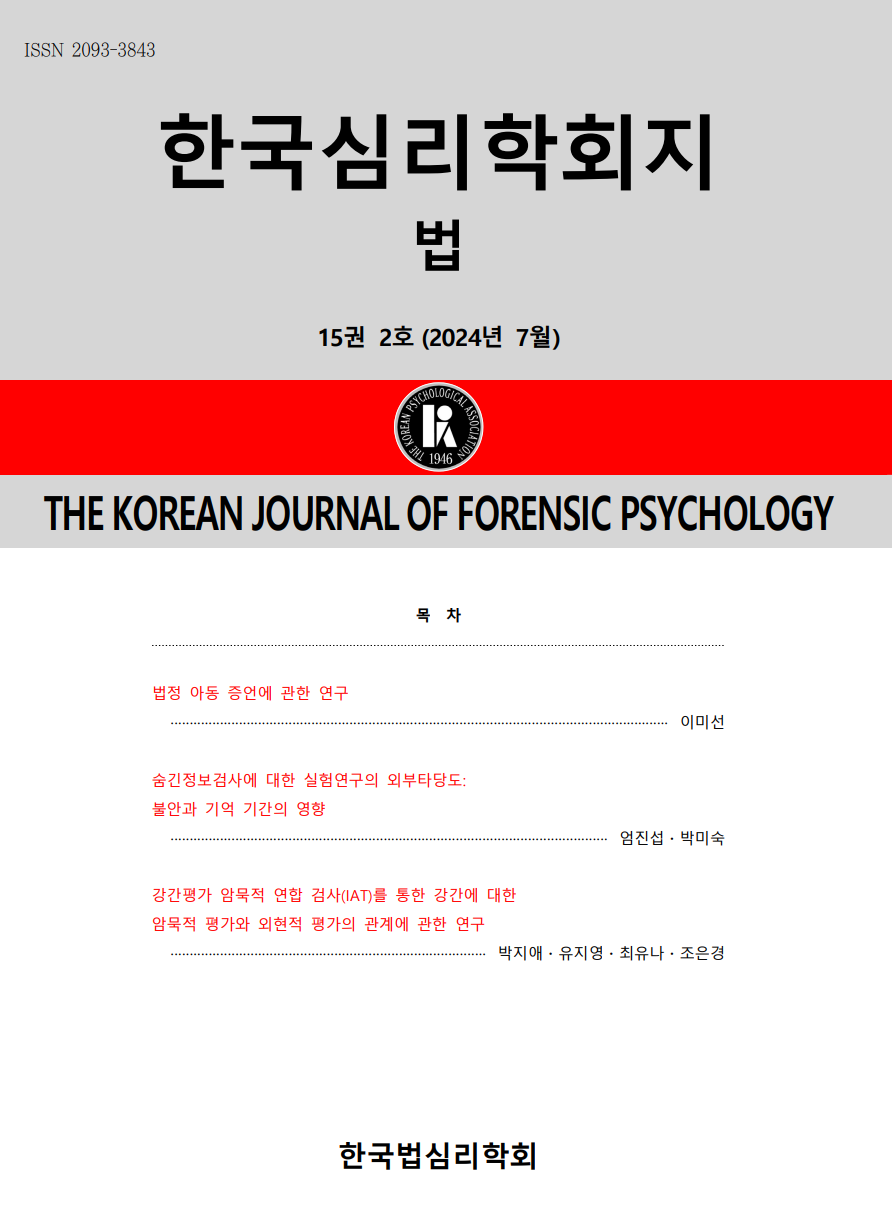open access
메뉴
open access
메뉴 ISSN : 2093-3843
ISSN : 2093-3843
The main purpose of this study is to develop and examine effectiveness comparison between cognitive behavioral therapy (CBT) and laughter therapy (LT) for deterring juvenile offenders as a fellow-up study of Chan-Hyun Ryu and Soo-Jung Lee's “Comparison of laughter therapy and cognitive behavior therapy on anger reduction and management institutionalized juvenile delinquents (2009).” While there's been a growing accumulation of longitudinal studies by using the life-table method in survival analysis and logistic regression analysis to identify cognitive behavioral therapy (CBT) as a particularly effective intervention for reducing and deterring the recidivism of juvenile offenders with anger management programs, including self anger management, self control therapy, self-instructional training, self-coaching skills, and self-instructional positive psychotherapy, there's been dearth of clinical trials on the therapeutic effects of laughter therapy (LT) in these areas of research. Hence, the specific aim of this clinical trial was to compare the differential therapeutic effects of cognitive behavior therapy (CBT) and laughter therapy (LT) on recidivism deterrence and prevention of juvenile delinquents in a 3-year (36 months) follow-up study. 69 delinquent male participants (mean age 20.12 yrs) were traced to be a recidivism rate of 24.6% (n=17) and a survival rate of 75.4% (n=52). Specifically, the positive effects of best practice of the CBT group (n=38) on a recidivism rate of 15.8% (n=6) and a survival rate of 84.2% (n=32) compared to the LT group (n=31) on a recidivism rate of 35.5% (n=11) and a survival rate of 64.5% (n=20) were shown (p = .059). In addition, the mere survival rates between the CBT group and the LT group represented no difference. The following implications and limitations of this study were discussed along with the suggestions for future studies as well.